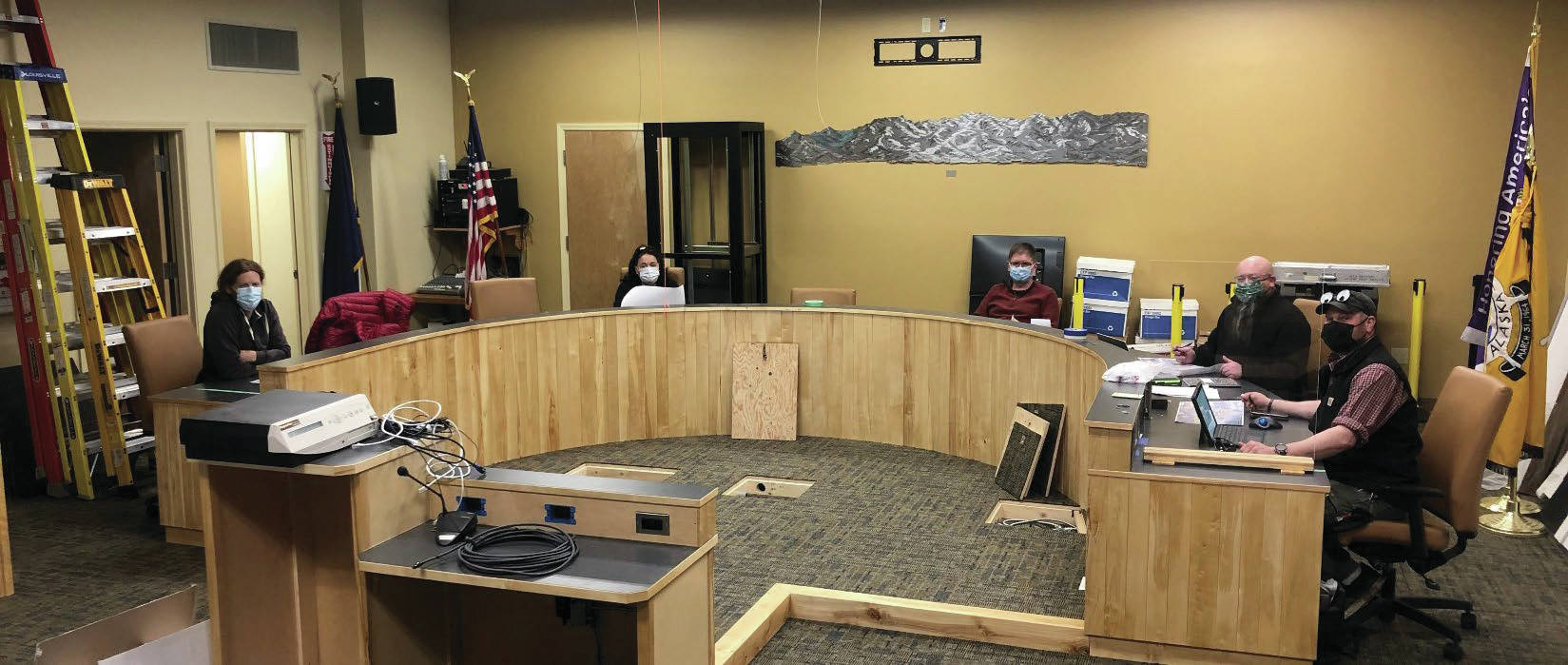People wanting to ride personal watercraft in Kachemak Bay may have to launch them from the Homer Harbor following a unanimous vote in favor of introducing legislation banning their launch from city-owned beaches by the Homer City Council during their Monday night meeting.
The legislation is the latest development in a months-long controversy that began with a repeal of a regulation banning the watercraft by the Alaska Department of Fish and Game last December.
The ordinance also applies to any motorized watercraft. If approved it would amend Homer City Code to read: “No person may launch, load, or retrieve a motorized watercraft from city owned beaches except for official business use or with Harbormaster approval.” The action taken by the Homer City Council approved the introduction of the ordinance. A public hearing on the legislation and final vote by the council will take place during its April 26 meeting.
ADF&G made the decision to repeal the regulation banning Jet Ski use in Kachemak Bay after Gov. MIke Dunleavy encouraged state departments to identify “overburdensome regulations” that were stopping people from enjoying Alaska, according to reporting by the Homer News. In allowing people to operate in the Fox River Flats and Kachemak Bay Critical Habitat Areas, the Alaska Department of Fish and Game said they considered thousands of public comments and potential impacts on wildlife and habitat.
“Jet Ski” is a registered trademark of Kawasaki, but is commonly used to describe personal watercraft, a type of boat in which the rider sits on top and steers it with handlebars like a motorcycle. Legislation usually refers to such vehicles as personal water craft, or PWCs.
Those in favor of allowing personal watercraft in Kachemak Bay say it will increase public access to critical habitat waters, noting that modern Jet Ski models do less environmental damage than older ones, while those in opposition say the move will increase noise in the area and may disturb wildlife and critical habitats.
Several environmental and conservation groups publicly opposed the move in a letter sent to Dunleavy last month, including Cook Inletkeeper, the Alaska Quiet Rights Coalition, the Kachemak Bay Conservation Society and the Friends of Kachemak Bay State Park.
Members of the community and city council members spoke in support of the legislation during the Monday night meeting. Many comments from the public in support cited concerns about sensitive habitats and intertidal areas, while members of council expressed their desire to do more to protect the environment.
Homer resident Roberta Highland called the legislation “a very good first step” and urged the council to approve the introduction of the ordinance and to pass it during their April 26 meeting.
“I do have grave concerns in regards to our sensitive tidelands around Mud Bay, Beluga Slough, Mariner Park, Green Timbers and Louie’s Lagoon,” Highland said. “…I am also concerned about Jet Skis being in the same areas as paddle boards, surfers — including wind surfers, swimmers and kayakers off of Bishop’s Beach and around the Spit.”
Robert Archibald also spoke in favor of the legislation, but said the council should keep in mind the effect PWCs would have on intertidal areas.
“As we move on, look at the wildlife that congregates in there and the recreational use,” Archibald said. “The city has control over these areas, so I hope you will take a look at that and, if it presents a problem, I think that you… need to think about doing something to protect that area.”
Rika Mouw said she agreed with Highland and Archibald’s comments, but that the council needs to do more to ensure the safety of city waters for “human and nonhuman” users.
“Launching, landing and retrieving of motorized watercraft from beaches is only part of the concern,” Mouw said. “The city tideland waters are generally shallow [and] very sensitive to conflicting and/or destructive uses, so motorized watercraft activity in city waters is of great concern.”
While multiple council members agreed that the ordinance is a good first step in addressing the issue, many said they want to do more.
Homer City Council Member Rachel Lord said she would be supporting the ordinance, but plans to bring forth additional legislation that would amend city code to expand the city’s no-wake zone throughout city-owned tidelands.
“I’ve had a lot of conversations over the last few days with a lot of folks concerned that it doesn’t really address all the issues,” Lord said. “While there are certain things that I’ve heard from folks that they’d like to see the city do, the one thing that I feel like is really applicable to what we can do in addition to this is to look at our speed limit essentially on city waters.”
Council Member Joey Evensen proposed implementing buoy signage to help deter users from sensitive habitats or instituting a fee specific to people launching PWCs, adding that allowing the vehicles in Kachemak Bay will require additional work from city personnel and corresponding city funds.
“I’ve always been bothered by the decision at the state level because it represents an unfunded mandate,” Evensen said. “We have a further obligation on our resources at the port and harbor because of these vessels. We will have further obligations in terms of search and rescue, in terms of our police and monitoring our beaches and so forth, and we’re not getting the funding to do that.”
City Council Member Donna Aderhold said the ordinance is a direct response to the state’s decision to allow personal watercraft in Kachemak Bay, but that the council doesn’t have the power to change that decision.
“We’ve had a couple of comments asking us to not allow personal watercraft to load/launch and I just want to reiterate that that’s really not within our purview to do,” Aderhold said.
The full meeting can be heard on the City of Homer’s website at cityofhomer-ak.gov.
Reach reporter Ashlyn O’Hara at ashlyn.ohara@peninsulaclarion.com.


